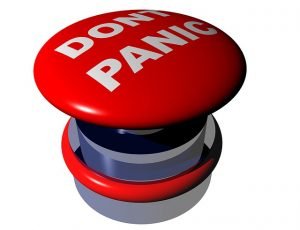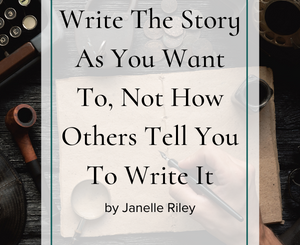Writer’s Block: When the Words Fail to Flow by Willow Woodford
 Let’s welcome back monthly columnist Willow Woodford as she shares with us: “Writer’s Block: When the Words Fail to Flow.” Enjoy!
Let’s welcome back monthly columnist Willow Woodford as she shares with us: “Writer’s Block: When the Words Fail to Flow.” Enjoy!
***

Brick wall- Image by PublicDomainPictures from Pixabay
Knowledge is power. So knowing why writer’s block happens and how to get through it is a tool every author should have in their pencil box.
In writing communities writer’s block is a feared but common word.
If you took part in NaNoWriMo last month, or have a close friend who did, you probably heard the term tossed out with varying degrees of anger, fear and despair.
Writer’s block happens.
Every writer will, at some point, face it. Their creativity will dry up.
The characters in their heads will go silent. Or the blog posts they previously had no trouble creating will suddenly vanish.
The most important thing to remember if this happens to you is:

Don’t Panic- Image by Pete Linforth from Pixabay
I know, that’s easy to say and hard to do.
Writer’s block seems to come on out of nowhere, leaving you overwhelmed, confused, and frightened.
Sitting down to write and finding you can’t might leave you frightened. You may wonder if your writer’s block will ever pass, or if it will return soon.
Panicking will probably only make this worse. And you can skip the panic dance if you know why you are facing writer’s block, and what to do about it.
I find the best cure for being frightened is knowledge. It might not stop me from being afraid, but I will, at least, understand what I’m facing and maybe even devise some ways to deal with it. So let’s discuss some causes and then some strategies to overcome writer’s block.
Causes of Writer’s Block
Jeff Goins, successful author and blogger who has himself faced and beaten writer’s block, discusses three possible reasons for writer’s block, timing, fear, and perfectionism.
There are probably many more, but these are big ones, so let’s talk about them.
Timing
Jeff Goins suggests that your idea might need more time to percolate. If you’re working on a deadline, this might not be possible.
There’s still no need to panic. Sometimes giving yourself permission to daydream for a few minutes can be enough to get the words flowing through your fingers again.
Sometimes it’s a matter of recognizing that your brain needs to switch gears to be creative. We’ll come back to this when we discuss solutions.
Fear
Fear is another cause of writer’s block. It can be very frightening to think about other people reading your words.
Even if you’ve published other pieces you aren’t immune to imposter syndrome. If Neil Gaiman faces it, don’t be surprised that you do to.
Perfectionism
This is one that often gets me. You might feel that if you can’t write it perfectly the first time, there’s no point in writing it at all.
The truth is, very few authors publish the first draft of anything.
Experienced authors might need less revision, but they still need revision.
Sometimes we just need to recognize perfectionism for what it is and push through it.
Ivy Sheldon says “insights [authors] have gained from their failures helped shape them into the amazing writers we admire.”
So be brave, let yourself risk failure and then learn from it and grow!
Solutions to Overcome Writer’s Block
Okay, so you know why you’re suffering from writer’s block. How do you beat it? How do you convince your brain it should be creative and make it write?
You don’t.
You don’t like that answer. But it’s honest. You can’t force your brain to create if it can’t.
There are, however, some things you can do to set your brain back on the right path and they are likely to get those creative juices flowing.
There are some very specific solutions listed in the articles I’ve referenced. I will discuss solutions I’ve used and work for me.
My solution will depend on why I’m feeling blocked and what I’m trying to write.
If I’m working on a blog post or article and struggling with where to start it or what angle I want to take, I know I need to do some research and learn more about the topic I’m writing on. Enter my friend Google.
I’ll research the topic more deeply, and read what other people have said about it, good and bad.
That’s a good practice anyway, you want to say something new, not just reword what others have said.
If I can, I’ll discuss the topic with someone, even my dog. (Smartest mutt in New Jersey!)
My brain works better when I say things out loud.
I can’t tell you the number of times I’ve asked a question I’ve been puzzling over and come up with the answer before I’m even done asking.
Next time you have a question, try asking it out loud before you search for the answer. You might find the answer in your head!
If those steps don’t get the words flowing, then I’ll give myself a day or so to let it bounce around my head.
I may or may not think about it during that time, but I never force myself to dwell on it.
There’s strong evidence that your brain needs downtime to recharge itself, and that downtime isn’t wasted.
We can’t always choose the timing of what we need to write, but we can budget in enough time to breathe and give the piece we’re writing time to grow.
My solution for fiction is a little more fun.
If I’m working on a fiction piece and the words won’t flow, I allow myself time to talk to my characters, daydream about them, and spend time with them. They are, after all, some of my favorite people.
If that doesn’t work, I’ll take a character out to lunch.
Usually the ones giving me the most backtalk, I mean trouble, and write an entirely unrelated scene for them. This usually helps me get in their heads and understand why they’re resisting me.
Another method I’ve used is writing scenes that occur “off page.” These are usually inconsequential events that my reader doesn’t need but will help me understand my world and how and why my characters relate to each other.
Most importantly, I remind myself that’s it okay to be afraid, but it’s not okay to let that fear stop me from being the writer I long to be. Every word I type makes me better. And each revision teaches me a little more.
Timing, Fear and Perfectionism, three possible causes of writer’s block.
If you think you’re dealing with one of these, journal your thoughts about it.
Once you’ve identified why you might have writer’s block, give yourself permission to relax and try some solutions to break it.
I’ve discussed three I use, but the internet is full of ideas, writing prompts and groups where you can join sprints and get those words flowing again.
Don’t be afraid to keep trying until you find the method that works best for you.
Do you ever get writer’s block? How do you deal with it?
***
ABOUT THE AUTHOR
Willow Woodford lives in her imagination, because it’s more interesting than the real world. When she isn’t dreaming up new stories, she likes to cook, hike, and cuddle with her chihuahua. She reads voraciously, staying up far too late, and reading anywhere she can, including grocery lines, parking lots, and waiting rooms.
Her real-world counterpart, Ann Shannon, lives in New Jersey with her family and spends as much time as possible visiting her grandchildren on the west coast.
Chat and follow Willow on Twitter: https://twitter.com/WillowWoodford.








